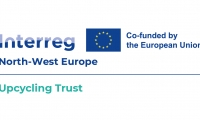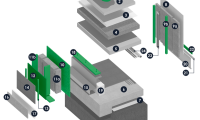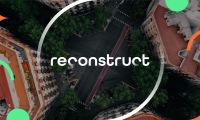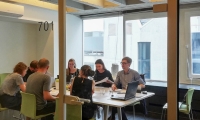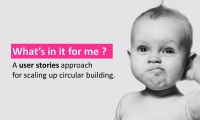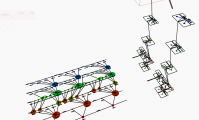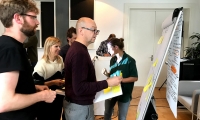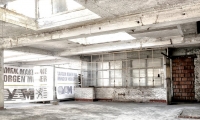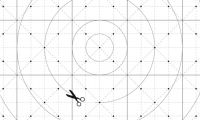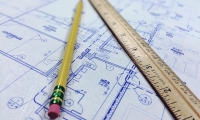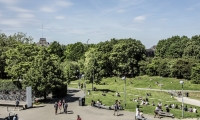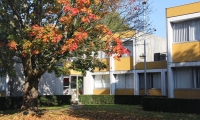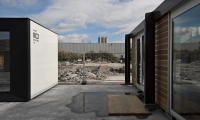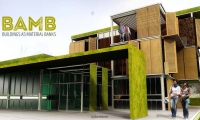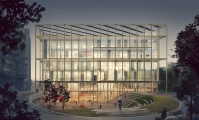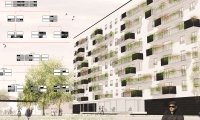Waldo Galle
Waldo Galle is a part-time assistant professor at Vrije Universiteit Brussel (VUB) and associate researcher for the Flemish Institute for Technological Research (VITO). As a member of the research groups VUB Architectural Engineering, and Business Technology and Operations, he studies the financial and socio-technical feasibility of a circular construction economy. He questions which opportunities the transition towards that economy raises, which constraints it creates, and how the architectural practice changes together with it.
Trained as an architectural engineer (Ghent University, 2011) and doctor in engineering (VUB, 2016) Waldo gained expertise on the environmental savings, functional resilience, and financial feasibility of circular building during fundamental and strategic research, and developed policy recommendations and design support tools in applied and consultancy projects. Together with prof. Niels De Temmerman, he develops this expertise further in for example ‘Aterlier Circulair’, a learning network of over 60 designers.
Familiar with methods for system analysis, interactive redesign and reflexive monitoring, Waldo explores also more strategic opportunities and hurdles, such as the changing business model of architectural firms, or the absorptive capacity of small and large construction companies. As a member of the VITO Nexus, Waldo applies these methods also in support of various international projects on the circular economy and related regional policies, for example in collaboration with EIT Climate-KIC.
Relying on educational experience and training, Waldo gives lectures, guides students, and assists training sessions for scholars and professionals on circular building and sustainability transitions. Together with prof. Cathy Macharis and Bieke Abelshausen he also developed the university-wide elective course ‘Sustainability: an Interdisciplinary Approach’, wherein community-engaged research and learning are put to action.
Finally, Waldo sees the transition towards a sustainable built environment – respectful of our planet’s boundaries, for which he cares much – as one of today’s wicked challenges. To tackle such challenges, he aspires fresh research approaches and crosses the boundaries of his lab, into the city. By confronting his results with those of peers in other fields and with the concerns of actors outside the safe academic realm, he truly wants support sustainable development. Therefore, Waldo is always open for new insights and collaborations.
Supervised PhDs
-
The repurposing of our built environment: Circular reconversion of office buildings to housing
by
Paulien Beeckman
-
Enabling circular valorisation of building components and materials: the role of consultancy processes.
by
Ruben Van Vooren
-
Reimagining vacancy. Circular design guidelines for a responsible redevelopment of vacant buildings.
by
Gabrielle Kawa
-
Closing the glass loop. Prototyping a practitioner’s road map to valorise end-of-life architectural flat glass.
by
Esther Geboes
-
Circularity for all. Circular design guidelines towards an accessible qualitative housing market.
by
Margaux Lespagnard
-
Actions for circular architecture: the development of actionable knowledge on circular economy for architectural designers through participatory action research
by
Charlotte Cambier
Projects
PhD research
Scenario based life cycle costing
| Date | 2012 - 2016 |
| Supervisors | Niels De Temmerman and prof. dr. arch. Ronald De Meyer |
| Funds | Research Foundation Flanders - FWO |
Transformable building is an innovative design and construction strategy. It aims for an adaptable building stock and fosters the future reuse of construction materials. As a result, long-term environmental and financial savings could be realised. Nevertheless, a feared increase of the initial cost impedes this strategy’s widespread implementation. To frame this impediment and gain better insight into the financial consequences of transformable building, the present research proposes an enhanced life cycle costing method. Taking into account the circular service life of transformable buildings this method empowers advisors and designers to evaluate the feasibility of transformable building and implement it in a well-conceived way.
To take into account the circular service life of transformable buildings as well as their unpredictable and dynamic nature the proposed method departs from life cycle scenarios. Such scenarios or imaginable futures reflect our varying requirements. To facilitate their integration in the life cycle cost analyses the present research developed five new features. These features include specific calculation methods as well as detailed modelling protocols. To illustrate their added-value an in-depth case study is conducted. The study’s outcomes show how scenario based life cycle costing allows to compare initial and long-term costs, evaluate model uncertainties, identify boundary conditions, understand design improvements and study investment risks.
Download the full-text thesis (Dutch and French summary)
Galle W. (2016) Scenario based life cycle costing: an enhanced method for evaluating the financial feasibility of transformable building (doctoral thesis). Vrije Universiteit Brussel, Brussels. 416 p.
Download the graphical thesis summary (English)
Galle W. (2016) Scenario based life cycle costing: an enhanced method for evaluating the financial feasibility of transformable building (graphical summary). Vrije Universiteit Brussel, Brussels. 15 p.
Master’s thesis
Time based design
| Date | 2010 - 2011 |
| Supervisors | prof. arch. Jan Moens and prof. dr. ir.-arch. Firmin Mees |
| Funds | Ghent University, Department of Architecture and Urban Planning |
During his master dissertation Time based design Waldo Galle became familiar with the concept of transformable building typologies. In his conviction of the current need for a new approach to our built environment he introduced the subject himself at the Ghent University. Time based design takes into account the changes which buildings should under go during their lifetime.The need for those changes can be clearly deduced from the accelerating dynamism of our society. For that reason, a design which anticipates on those changes is essential. Subsequently, the environmental load of constructing can be reduced and more opportunities are offered to the user.
Since he has been making a broadening study on design aspects of transformable buildings, he made acquaintance of the majority of international research in the field. But most it were the numerous brainstorming sessions with his promoter and mentors, the process of trial and error and the ultimate breakthrough that have strengthened his interest in academic research. The dissertation was made in a collaboration with æ-lab at the VUB. Within the field of Transformable Design, directed by Prof. dr. ir. arch. Niels De Temmerman, the lab had developed a substantial expertise related to transformable shelters, mobile scissor structures and the interchangeable refurbishment of social housing.
Download the thesis (Dutch)


